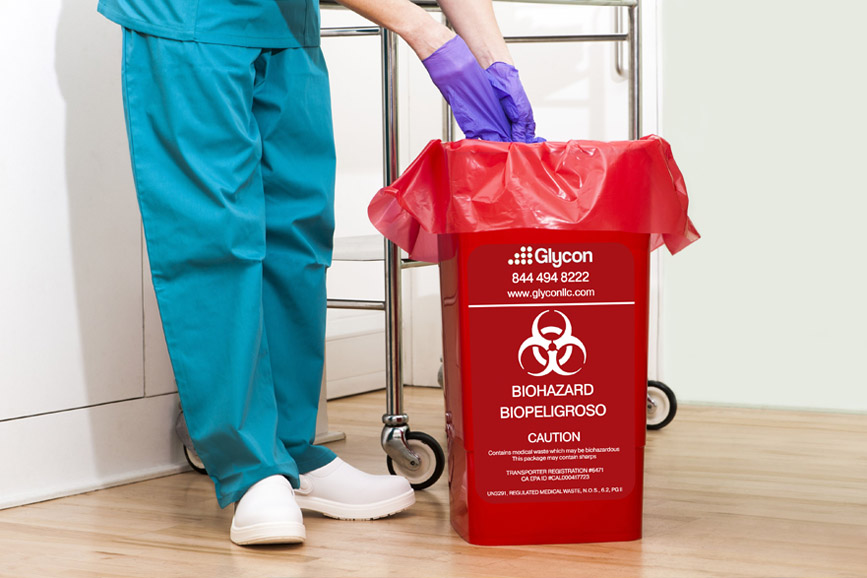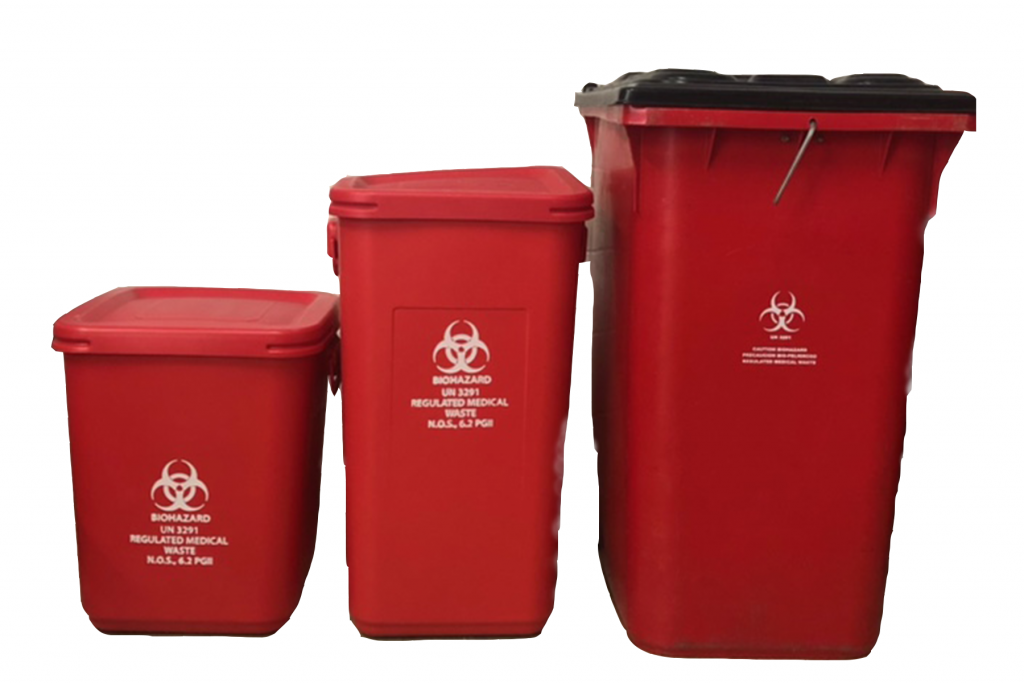Shielding Health And Wellness: Specialist Medical Waste Removal Services for a Tidy Setting
Shielding Health And Wellness: Specialist Medical Waste Removal Services for a Tidy Setting
Blog Article
Remain Ahead of Regulations: Expert Recommendations on Medical Waste Disposal
In a world where the health care market is frequently advancing, it is crucial for clinical centers to remain in advance of guidelines when it involves the correct disposal of clinical waste. With rigorous standards and constant governing adjustments, it can be testing to browse the complexities of this process. With skilled guidance, facilities can guarantee compliance and reduce risks connected with improper waste disposal. From understanding the different categories of clinical waste to carrying out the ideal collection and segregation methods, this conversation will certainly supply useful insights and workable ideas to assist facilities remain ahead of laws in the ever-changing landscape of clinical waste disposal.
Comprehending Clinical Waste Categories
Comprehending medical waste groups is vital for appropriate disposal and administration in healthcare facilities. Medical waste describes any type of waste generated by healthcare activities that might pose a risk to public health or the environment. It is important to classify clinical waste properly to guarantee its secure handling, disposal, transportation, and therapy.
There are several categories of medical waste that healthcare facilities require to be aware of. The most typical groups consist of contagious waste, pathological waste, sharps waste, pharmaceutical waste, and chemical waste. Each category has particular standards and policies for its correct management and disposal.
Pathological waste refers to human tissues, organs, or body parts that call for special handling and disposal. Pharmaceutical waste comprises ended, extra, or polluted medications that require careful handling and disposal.
Remaining Up-To-Date With Regulatory Adjustments
Staying existing with regulative changes is vital for healthcare centers to make sure compliance and correct monitoring of clinical waste disposal. medical waste removal near me. With laws constantly progressing, it is important for healthcare facilities to stay updated to prevent fines, fines, and possible injury to the atmosphere and public health
To stay in advance of regulative changes, medical care facilities should establish a system for surveillance and monitoring updates. This can be done by registering for regulative e-newsletters, attending workshops and meetings, and actively taking part in market organizations. Additionally, facilities must mark an employee or team in charge of remaining educated and disseminating details to appropriate stakeholders.
Routine interaction with regulative firms is also essential. Healthcare facilities need to develop relationships with regional, state, and federal companies to ensure they recognize any kind of modifications in laws that might impact their waste administration techniques. This can be done with regular conferences, involvement in public comment durations, and aggressive involvement with governing agencies.
Additionally, healthcare centers ought to consider partnering with waste management business that specialize in medical garbage disposal (medical waste disposal services with WasteX). These firms are often skilled in the most recent regulations and can provide advice and support to ensure conformity
Executing Correct Collection and Segregation Methods
To effectively handle clinical garbage disposal, health care facilities should establish appropriate collection and partition approaches according to regulatory guidelines. Executing these techniques guarantees the secure handling and disposal of potentially harmful products, shields the setting, and reduces the threat of injuries and infections to medical care workers and the basic public.
Proper collection and partition methods involve making use of designated containers and classifying systems. Medical care centers must offer plainly labeled containers for different kinds of medical waste, such as sharps, contagious waste, pharmaceutical waste, and non-hazardous waste. These containers ought to be color-coded and clearly marked to stay clear of confusion and advertise easy identification.
Furthermore, healthcare facilities must train their personnel on the correct procedures for accumulating and setting apart clinical waste. This medical waste disposal services with WasteX consists of educating them on the different sorts of waste, the ideal containers to use, and the importance of adhering to regulations and standards. Normal training sessions and correspondence course should be performed to make sure that personnel members stay updated on finest methods.
In addition, healthcare facilities ought to establish a system for regular collection and disposal of clinical waste. This might include partnering with qualified waste management business that concentrate on medical waste disposal. These companies will certainly ensure that the gathered waste is transported and dealt with in compliance with regulatory demands.
Choosing the Right Disposal Approaches

Incineration is just one of the most typical and reliable approaches for disposing of specific sorts of clinical waste, such as pathological waste and sharps. It involves the controlled combustion of waste at heats, reducing it to ash. However, incineration can release harmful toxins right into the air and contribute to air pollution.

Chemical therapy includes the usage of chemicals to decontaminate and reduce the effects of the waste. Microwave therapy makes use of microwave power to heat and sanitize the waste.
Guaranteeing Conformity Through Documents and Training
After thoroughly thinking about the proper disposal methods for medical waste, healthcare centers should make certain compliance with regulations and reduce ecological impact by applying effective documents and training treatments. This step is important in keeping a risk-free and sustainable setting for both health care employees and the public.

Training is equally essential in guaranteeing compliance with regulations. Health care employees who take care of clinical waste must get appropriate training on waste segregation, managing, and disposal treatments. This training ought to cover subjects such as the correct usage of individual protective devices, recognition of different sorts of waste, and the correct disposal approaches for each and every waste group. By providing comprehensive training, medical care facilities can encourage their staff to make educated decisions and directory decrease the risk of incorrect waste disposal.
Conclusion
Finally, staying in advance of laws in clinical garbage disposal is essential for healthcare centers. medical waste removal service. Recognizing the various classifications of medical waste, staying updated with governing modifications, carrying out appropriate collection and partition techniques, selecting the proper disposal methods, and making sure compliance through paperwork and training are all essential steps. By complying with these guidelines, healthcare organizations can properly get rid of and handle of clinical waste in a secure and accountable fashion
From understanding the different you could check here categories of clinical waste to executing the ideal collection and segregation techniques, this conversation will give workable pointers and valuable insights to aid facilities remain ahead of guidelines in the ever-changing landscape of clinical waste disposal. - medical waste disposal services with WasteX
The most common groups include contagious waste, pathological waste, sharps waste, pharmaceutical waste, and chemical waste. Medical care centers should provide clearly labeled containers for various types of medical waste, such as sharps, contagious waste, pharmaceutical waste, and non-hazardous waste. Medical care facilities need to establish a comprehensive system to tape and track all aspects of medical waste disposal, consisting of types of waste produced, amounts, and disposal approaches used. Medical care employees who deal with medical waste needs to receive appropriate training on waste partition, dealing with, and disposal procedures.
Report this page